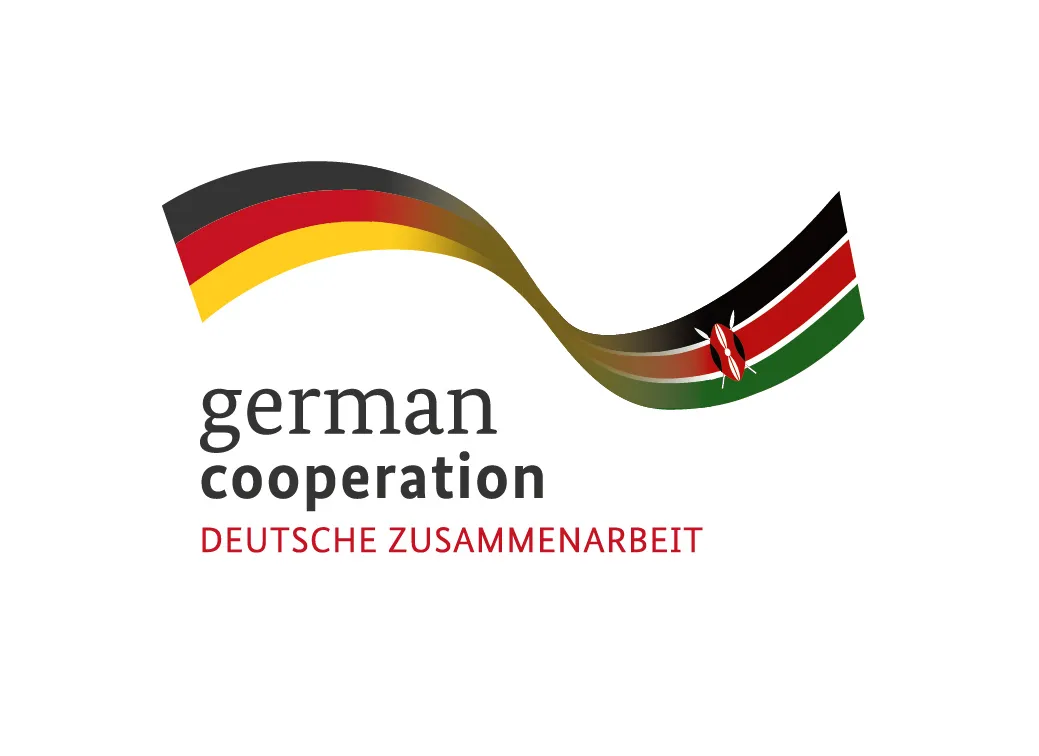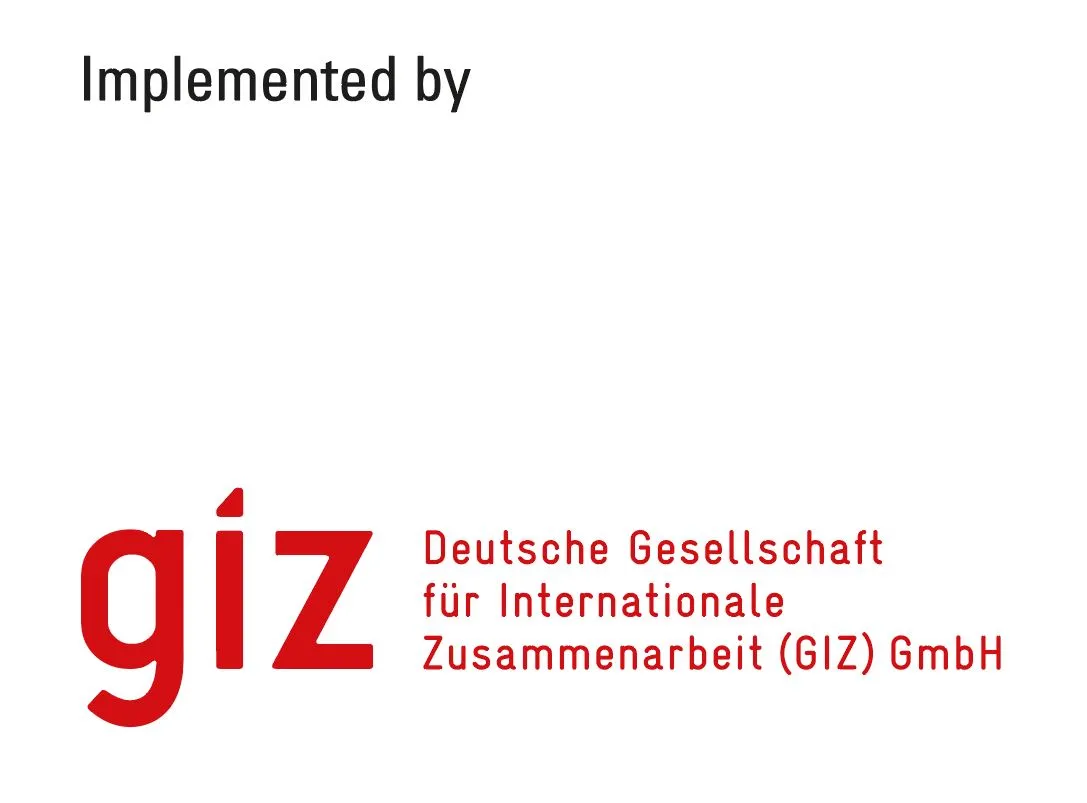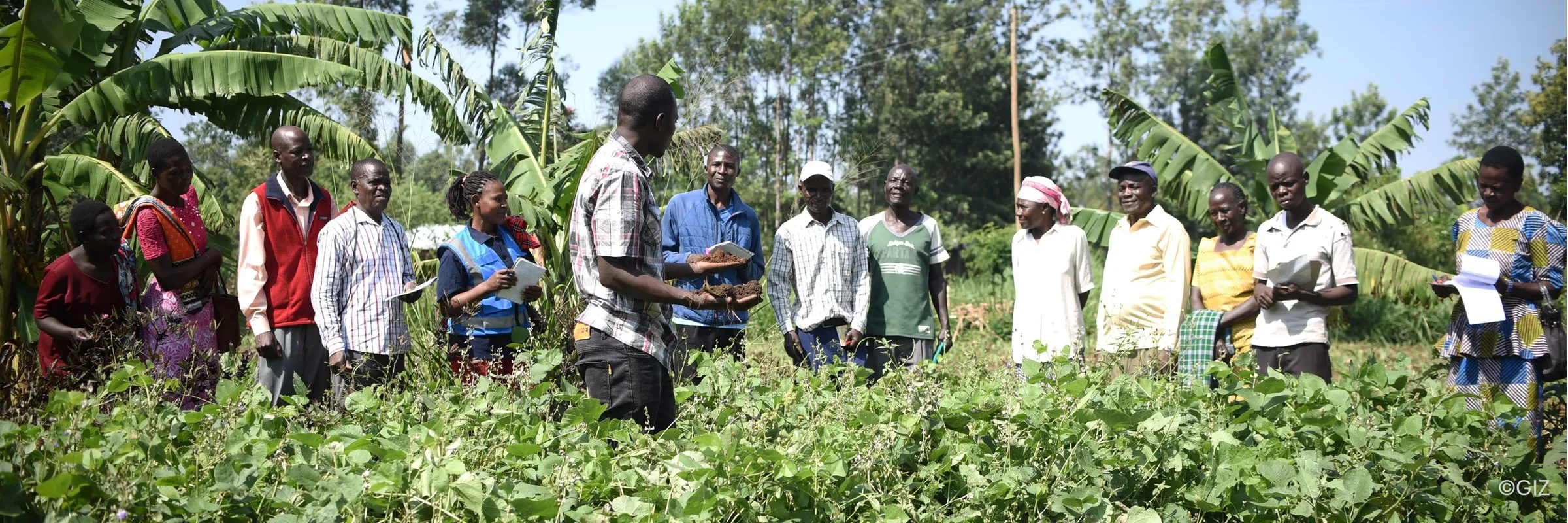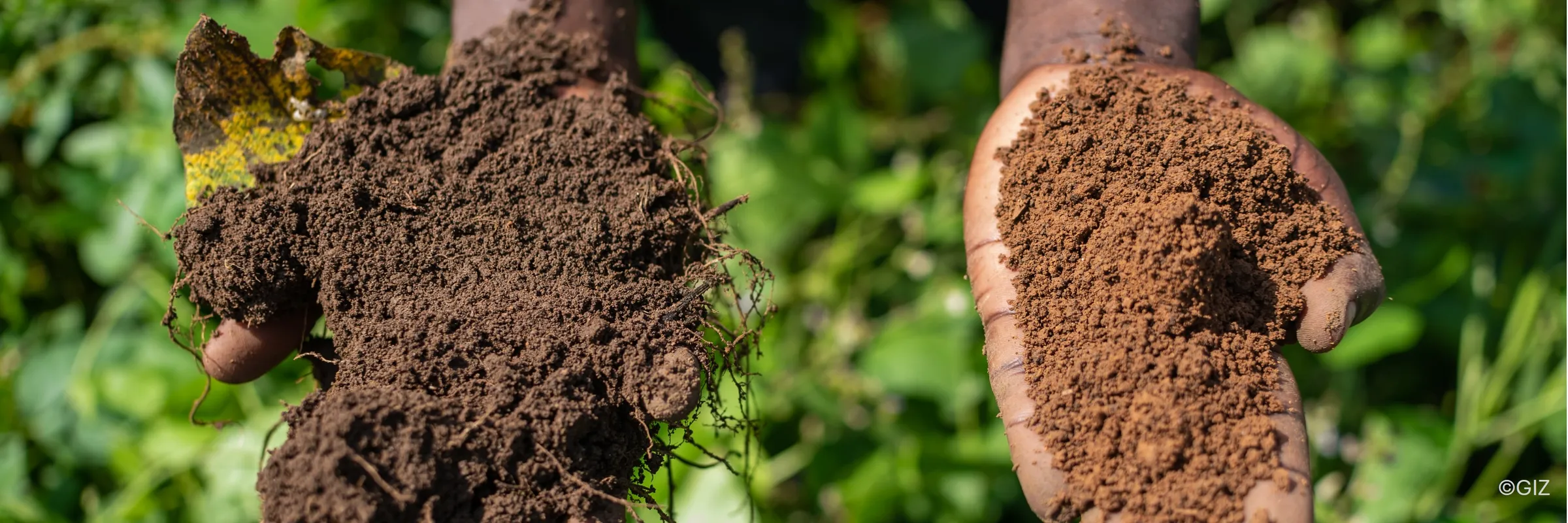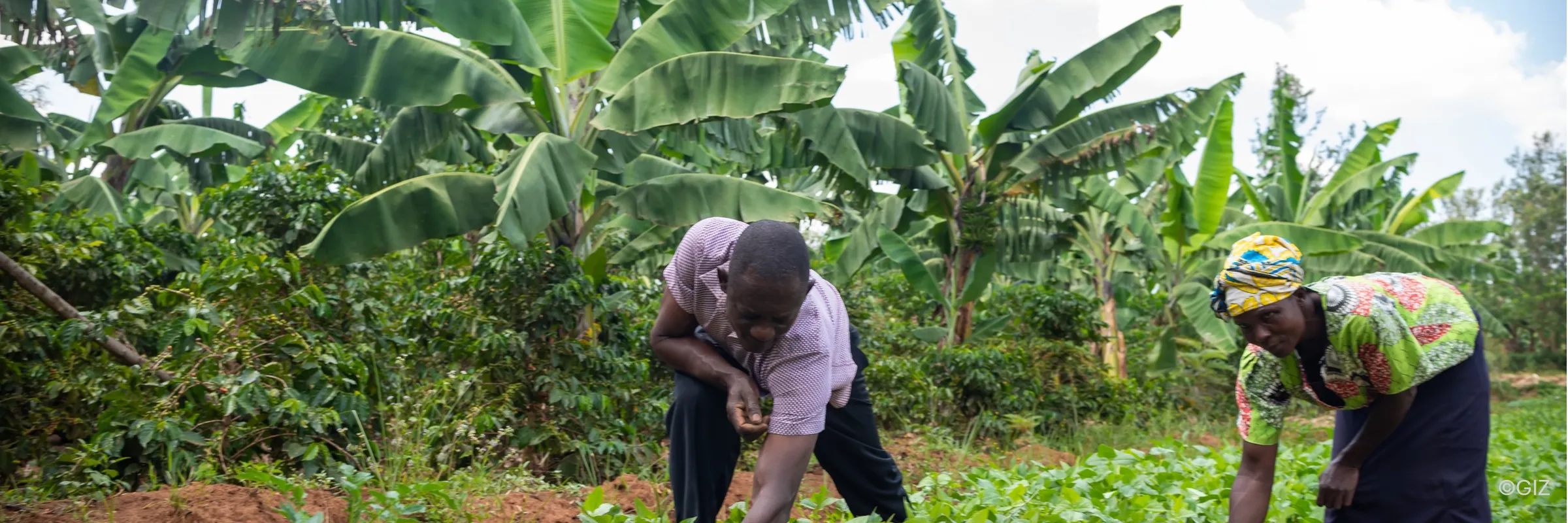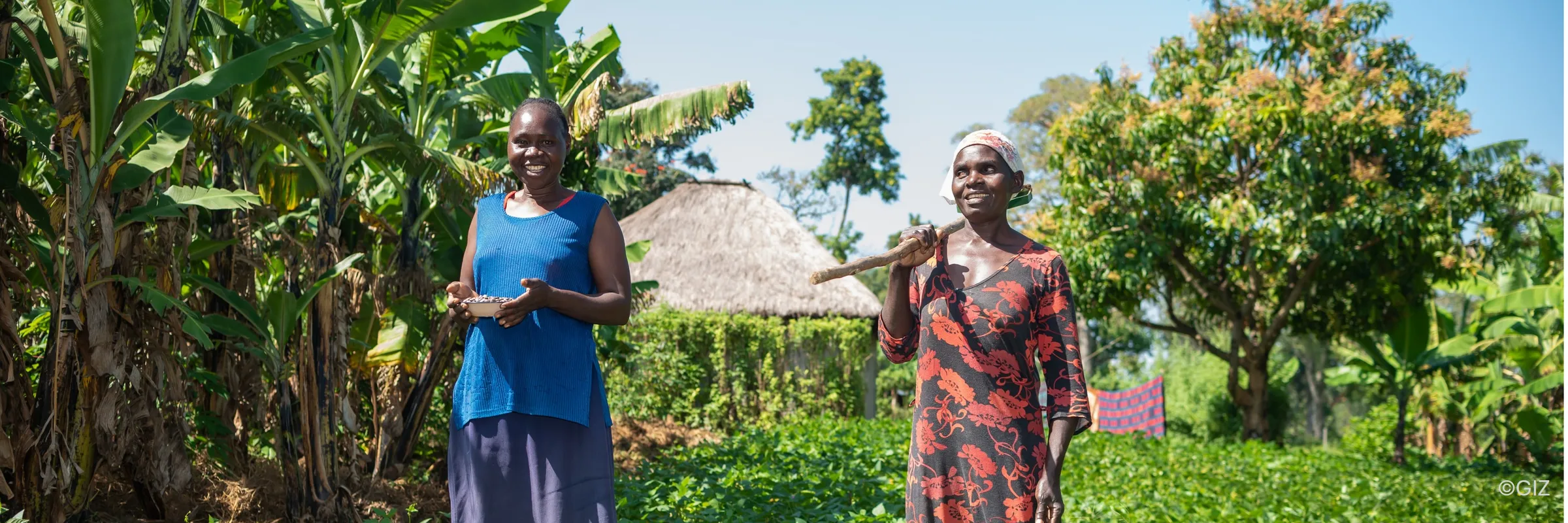ProSoil Kenya
- Home
- ProSoil Kenya
As part of the German special initiative „Transformation of Agricultural and Food Systems”, the Global Programme “Soil Protection and Rehabilitation for Food Security” (ProSoil), supports and advises smallholder farmers in Ethiopia, Benin, Burkina Faso, India, Kenya, Madagascar and Tunisia on agroecological and climate-smart agricultural practices and transformation processes focusing on sustainable land management. WOCAT has supported the documentation and exchange of best practice in the seven countries, including Kenya.
In Kenya, the lead executing agency of ProSoil is the Ministry of Agriculture, and Livestock Development. The project works in the three counties of Siaya, Kakamega and Bungoma and aims at facilitating the adoption of sustainable soil management by small holder farmers at scale.
Best practices in Kenya
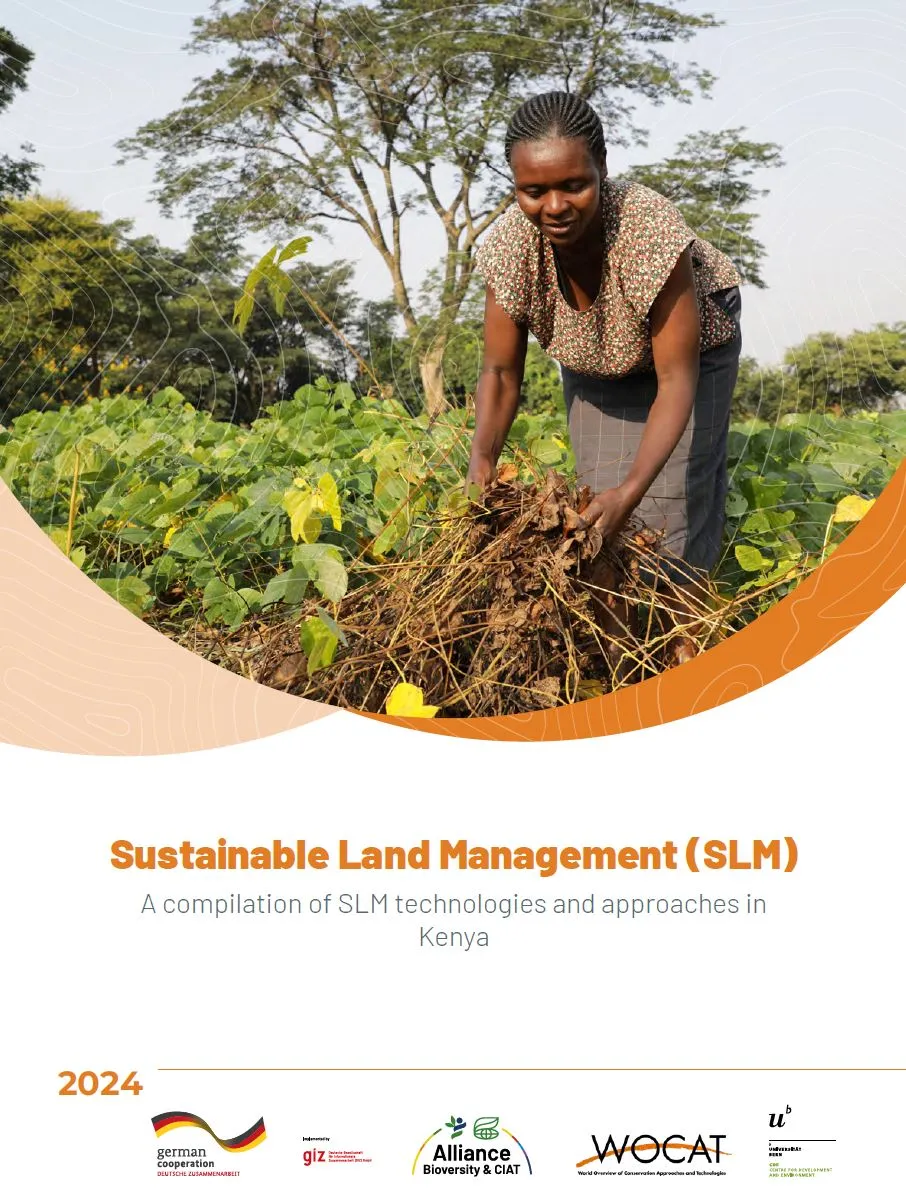
ProSoil Kenya has disseminated SLM practices across the Siaya, Bungoma and Kakamege counties: practices for soil fertility management, for water and soil management and infrastructure, for agriculture and agroforestry and for farmer research and extension. 11 practices documented within the activities by ProSoil Kenya are compiled to this document. This document disseminates invaluable knowledge on SLM practices, reinforces the good practices highlighted and supports evidence-based decision-making. It is organized as follows: the context and method used for documentation are described in the first part, categories of SLM practices are presented in the second part, while the final sections of the document describe SLM practices, their implementation mechanisms and their ecological, economic and social benefits.
Read more about Conservation Agriculture in Kenya
The challenge
Western Kenya is characterised by high landscape diversity. Farmers grow food crops such as maize and beans mostly for their own consumption. However, often the farmers are no longer able to feed their families throughout the year from their fragmented farming plots – the land is subject to high cropping pressure. Many farmers convert additional land into cropland by cutting down forests, even on hillsides and riverbanks. A lack of erosion control combined with improper fertiliser use has resulted in massive losses of soil organic matter and acidification and hence, degrading soil fertility. Climate change has resulted in erratic and intense rainfall events that amplify the problem. The result is a decline of crop yields to 30-40 percent of their original potential. At the same time, public investment into the agricultural sector has not been sufficient and targeted enough to address the problem successfully.
As a result, smallholder farmers are basically ‘out on their own’. Often, they lack financial resources, knowledge and sufficient incentives to better protect their soils. Through trainings on soil management based on agroecological principles, policy advice and business development, ProSoil supports farmers in Western Kenya to produce more with less money while persevering natural resources for the generations to come.
Conservation Agriculture Improves Crop Yields in Siaya Village
Rosemary Odongo, a 48-year-old farmer from Timatek Farmers Group, in Uloma Village, Siaya County Kenya remembers starting farming in 1987. At that time, she was only 15 and never received any training in farming:"I didn't know how to farm. I used to scatter seeds during planting, not even minding where some fell." Additionally, she faced challenges with weed management as well as surface runoff. As a result, in some seasons, they would not farm their land but lease land elsewhere.
In 2018, with the support of ProSoil in Kenya, Rosemary, together with her group, were trained on soil erosion control. In turn, with the support of her husband Samuel, she has been able to implement soil and water conservation measures on her farm to address the soil erosion problem. Some of the measures implemented include terracing, planting of agroforestry trees along the contours to hold the soil together, preventing runoff,
trash lines and planting of cover crops to conserve moisture. The measures implemented by Rosemary have greatly improved the soil condition
on her farm. She has noticed that there is no more soil erosion in her farm; the soil is more fertile, retains more moisture, and as a result, she has increased yields from two to twelve ninety kilo bags from one acre. Rosemary and her family can now sell the surplus harvest and other farms produce to generate income that sustains them; she can also afford to share her farm produce with their neighbours while at the same time meets the food requirements for her ten household members. Overall, Rosemary and her family have noticed that they now spend less money on farm expenses.
Samuel, Rosemary's husband would give advice to his fellow farmers: "I would urge my fellow farmers to control soil erosion in their farms to protect their soils and also plant beneficial trees like Grevillea robusta which holds the soil together so that when the rain comes the soil is not washed away.’’
Other ProSoil products for Kenya
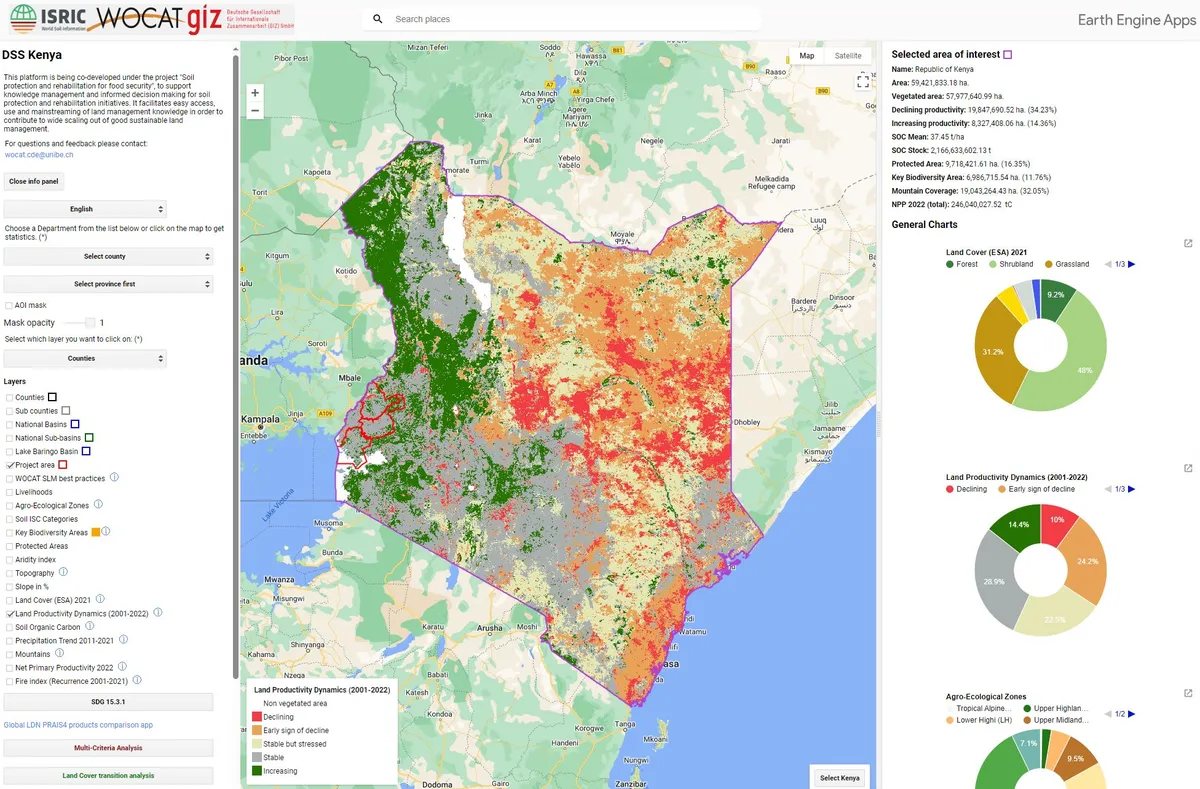
In October 2023, WOCAT and GIZ organized a successful training on Mapping Land Degradation in Kenya in order co develop tools, knowledge products and strengthen capacities to enhance national processes related to UNCCD and LDN, such as reporting and LDN target setting, as well as to support evidence-based processes such as land use planning and monitoring.
